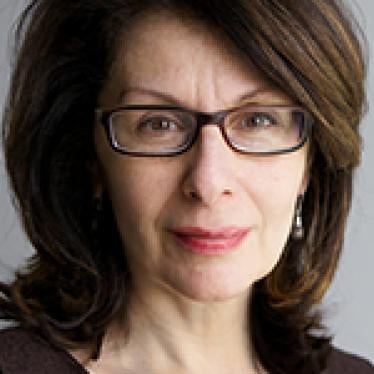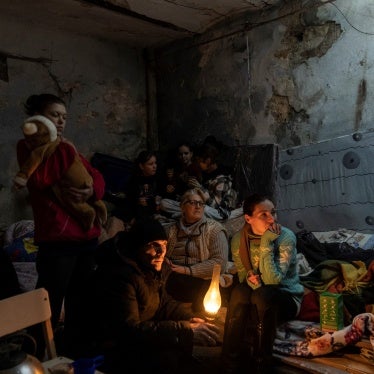When Indian Prime Minister Narendra Modi visits Moscow on July 8, the abiding question will be his government’s response to Russia’s war in Ukraine and the horrific suffering that Russia’s abuses have caused millions of Ukrainian civilians.
“Today’s era is not the era for war,” Modi had said in 2022 to Russian President Vladimir Putin, telling him that “democracy, diplomacy and dialogue – these things help the world.” India’s external affairs minister in March said they spoke “very frankly and bluntly” to Russia about resolving the conflict.
However, such private criticism has clearly had no impact on Russia’s conduct of the war. A Russian official told an Indian journalist that the Modi administration should show “real, clear understanding of Russia’s position”, and when asked about his government’s indiscriminate bombing in Ukraine, declared that “everything is justified when it comes to the existence of Russia.”
Russia’s toxic global standing has made it rare, these days, for leaders of major democratic powers like India to visit. So, when Modi visits Moscow, many Ukrainians may feel aggrieved if he fails to publicly acknowledge the atrocities and their suffering. The many Russians horrified by the Kremlin’s abusive war may also feel betrayed.
Russia’s full-scale invasion in February 2022 has had a disastrous impact on Ukraine, killing thousands of civilians, injuring many thousands more, and destroying much private property and infrastructure. Russian forces have committed a litany of violations of international humanitarian law, including widespread indiscriminate bombing and shelling of populated areas that have damaged and demolished homes and healthcare centres, educational facilities, as well as museums, archives, cultural sites, and places of worship.
Russian forces carried out repeated bombing campaigns of Ukraine’s electricity grid, which, during the 2022-’23 winter, left millions temporarily without heat, water and other essential services. It prompted the International Criminal Court to issue arrest warrants for Russia’s top military commanders. But the bombing of infrastructure persists, putting Ukraine’s energy grid at risk ahead of the next winter.
In areas they occupy, Russian forces and proxy forces in southeastern Ukraine commit horrific abuses against civilians, especially those they suspect of resisting the occupation, including torture, summary executions, enforced disappearances, sexual violence, and looting of cultural property.
Some of Russia’s breaches of international humanitarian and human rights law that seek to erase Ukrainian statehood, culture, and language mirror tactics of colonial armies. For example, the occupying authorities have imposed the Russian state curriculum in schools in areas they occupy and Russian as the language of instruction, banned the Ukrainian curriculum, and severely limited the teaching of the Ukrainian language.
The history and social studies elements of the curriculum amount to efforts to indoctrinate Ukrainian schoolchildren with the Kremlin’s anti-Ukrainian narrative. Textbooks distort Ukrainian history, deny the existence of the Ukrainian state and language, and falsely claim that today’s Ukraine is led by a “neo-Nazi regime”. The Russian occupiers harshly retaliate against school workers who refuse to cooperate with the occupation.
The school curriculum includes elements that amount to blatant war propaganda, and many Ukrainian schoolchildren are subjected to military training in schools. Occupation authorities threaten parents whose children study online in the Ukrainian school system with fines, detention, and deprivation of child custody. Russian forces conscript Ukrainian civilians in occupied areas or otherwise try to forcibly enlist them into the Russian military, essentially forcing them to fight their compatriots.
The repression of the Ukrainian state and culture started not with the full-scale invasion in 2022, but with Russia’s initial invasion in 2014 when its forces occupied Crimea. In a matter of months after that, Russian authorities shattered free expression and restricted the right to peaceful assembly on the peninsula. Russian authorities relentlessly persecuted those who opposed Russia’s actions in Crimea, targeting in particular the Crimean Tatar community, a Muslim ethnic minority native to the Crimean peninsula who have openly opposed Russia’s occupation.
In June, the European Court of Human Rights unanimously ruled that Russia was responsible for committing systemic human rights violations in Crimea and detailed a pattern of ghastly abuses that Russia has perpetrated in Crimea since the start of the occupation, including against Crimean Tatars.
Russia’s abuses in Ukraine do not appear to have seriously tested India’s longstanding friendship. Apart from voting for a May 2023 United Nations resolution that explicitly acknowledges “the aggression by the Russian Federation against Ukraine” that was part of a broader call for global cooperation, India has mostly abstained from UN action on Ukraine, including resolutions that established and extended a UN commission of inquiry to examine all abuses in the war. India has even helped Russia’s war economy by purchasing its crude oil following sanctions imposed by the US and the EU that shut most Western markets for Russian exports.
Yet when Modi met with Ukraine’s President Volodymyr Zelenskyy in June during the G-7 summit in Italy, he recommended “a human-centric approach” to the hostilities that he said the Indian government would support.
Modi’s administration has been far from “human-centric” at home, where his party lost its majority in Parliament in the Lok Sabha elections in April-May. The government has long discriminated against religious minorities, cracked down on civil society, and failed to uphold economic and social rights.
But the Indian government also wants to be recognised as global leader and the “Mother of Democracy.” To do that entails telling truths to friends when it counts, even if it might make them uncomfortable. Kremlin spokesman Dmitry Peskov has said that because of the “very trusting nature” of the relationship between the two leaders, no topic is off-limits.
It would be pity, in that case, if Modi can’t tell Putin that his abuses against Ukrainian civilians are wrong. Perhaps he can, as prime minister of a country that bore the brunt of colonial domination and erasure, say that teaching Ukrainian children to hate their country, to forget their language and culture, or to threaten their teachers, is far cry from a rights-respecting approach.
Meenakshi Ganguly is deputy Asia director and Rachel Denber is deputy Europe and Central Asia director at Human Rights Watch.









